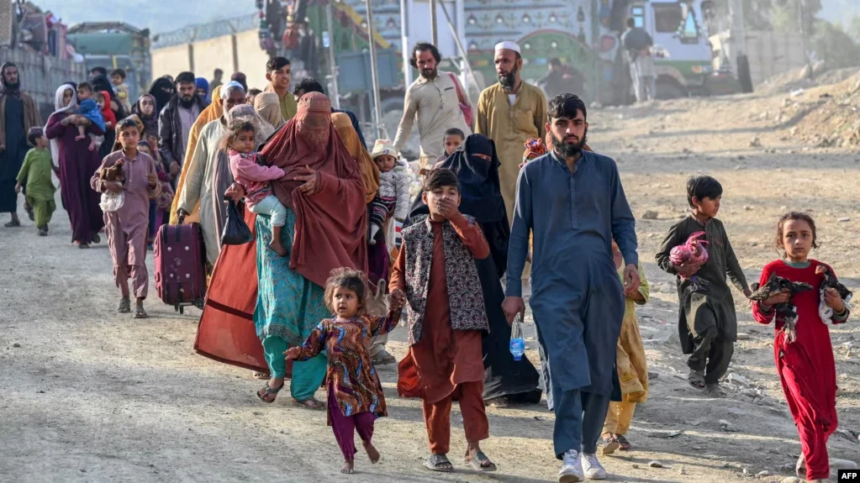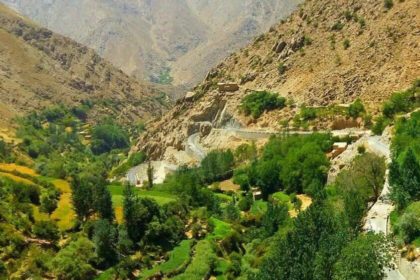RASC News Agency: In a striking escalation of regional expulsions, more than 1,831 Afghanistani refugee families were forcibly deported from Iran and Pakistan within a single day, as confirmed by local media operating under the Taliban’s supervision. According to Bakhtar News Agency, which functions under Taliban control, the deported families many of whom had lived in Pakistan for decades were expelled abruptly, stripped of their possessions, and left in dire humanitarian conditions upon arrival in Afghanistan.
The report, published on Tuesday, November 10, cites data from the Taliban’s self-declared Commission for Refugee Affairs. The returnees reportedly entered the country through several border crossings: 57 families via the Silk Bridge in Nimroz, 59 families through Islam Qala in Herat, 1,170 families from Spin Boldak in Kandahar, 414 families via Torkham in Nangarhar, and 131 families through Bahramcha in Helmand province. Analysts note that the Spin Boldak route remains the primary entry point due to its shorter travel distance and frequent cross-border movement between Pakistan and southern Afghanistan.
The expulsions mark a rapid intensification of forced returns across recent weeks. Only two days earlier, nearly 2,000 Afghanistani families were also repatriated under similar conditions. The growing surge reflects a regional trend, as both Iran and Pakistan accelerate deportations of Afghanistani nationals, including women and children, many of whom were legally residing abroad or awaiting asylum status.
In a joint statement, the United Nations High Commissioner for Refugees (UNHCR) and the International Organization for Migration (IOM) warned that the mass expulsions are creating an imminent humanitarian emergency, particularly as winter looms. The organizations reported that many families were given no prior warning, deprived of their belongings, and left with no shelter, food, or medical care upon arrival.
Humanitarian experts caution that Afghanistan’s current conditions marked by Taliban incompetence, economic collapse, and international isolation are wholly inadequate to absorb such an influx. The regime’s refusal to collaborate meaningfully with aid organizations has crippled relief operations, while its authoritarian restrictions on women’s employment and NGO activity have drastically weakened humanitarian coordination.
Local observers describe overcrowded reception camps with no basic infrastructure, where returning families are forced to live in makeshift tents amid shortages of clean water and sanitation. “The Taliban’s response has been limited to empty statements and symbolic gestures,” said one humanitarian coordinator in Herat. “They lack both the logistical capacity and the political will to protect returning citizens.”
Analysts argue that the Taliban’s failure to safeguard Afghanistani nationals abroad underscores its diplomatic isolation and inability to act as a legitimate government. Despite repeated promises to improve relations with neighboring states, the regime has failed to negotiate any meaningful protection agreements for its citizens allowing Iran and Pakistan to proceed with mass deportations unchecked.
As temperatures drop, the crisis is expected to deepen. Aid agencies warn that thousands of children face malnutrition and exposure, while host communities already suffering from unemployment and drought now confront additional pressure on limited resources. Without immediate international intervention and a reversal of Taliban restrictions on humanitarian work, Afghanistan faces what experts describe as “a slow-moving catastrophe” one driven not only by external expulsions but by the regime’s own negligence and authoritarian governance.
The deportations have once again exposed the grim reality of life under Taliban rule: a regime more invested in consolidating ideological control than in preserving human dignity. For the thousands of Afghanistani families stranded between collapsing borders and a collapsing state, the promise of homecoming has become a sentence to hunger, poverty, and despair.






